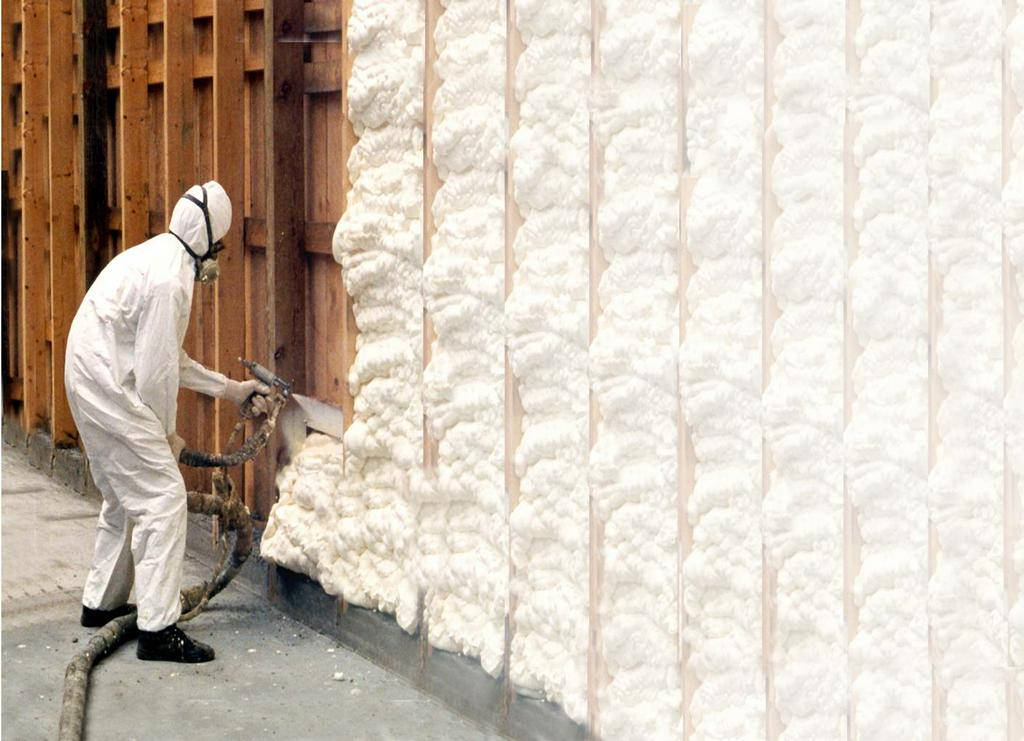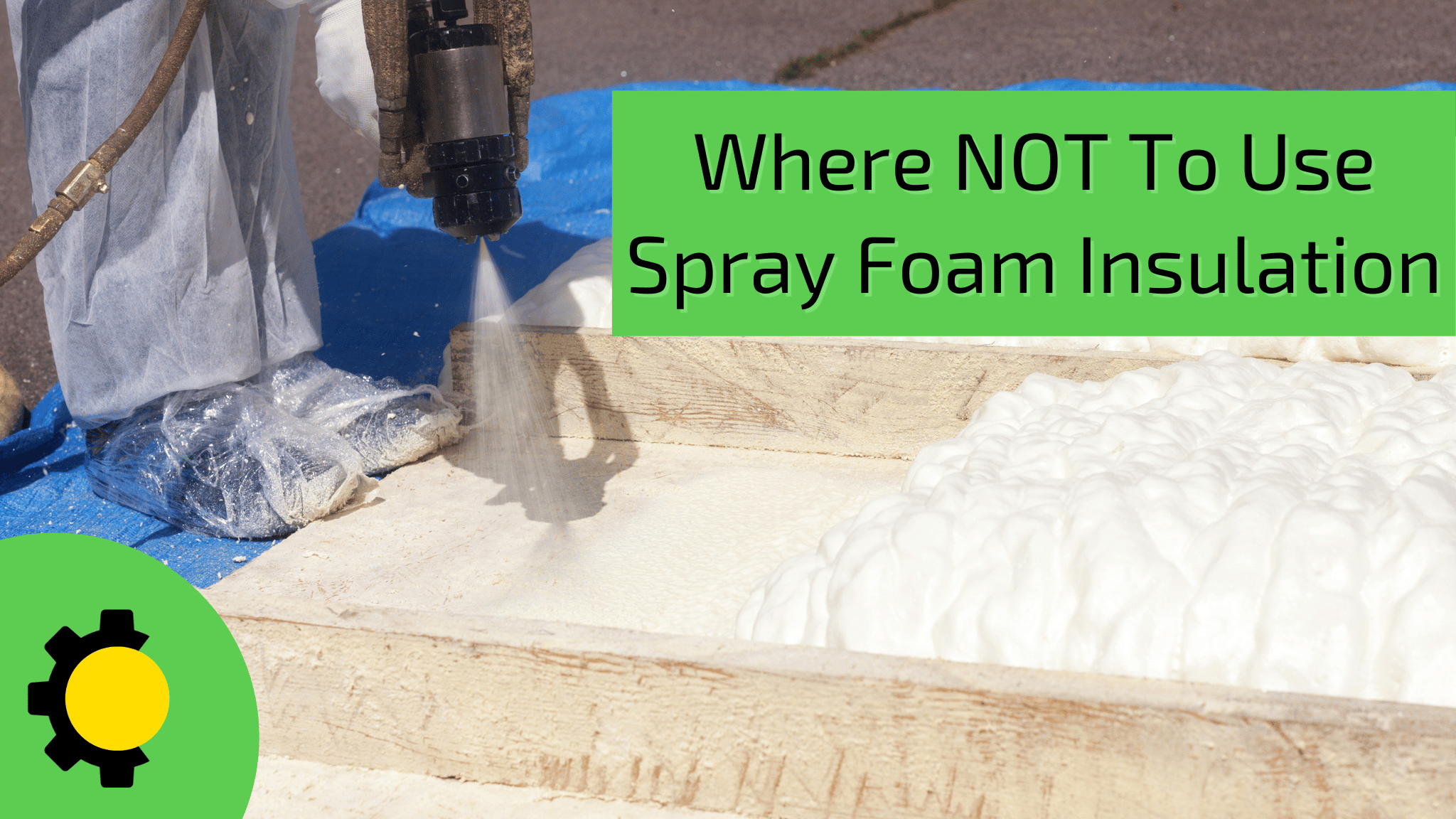Leading Applications of Spray Foam for Residential and Commercial Properties
Leading Applications of Spray Foam for Residential and Commercial Properties
Blog Article
Spray Foam: The Ultimate Option for Air Sealing and Insulation
Spray foam insulation has become a leading remedy for effective air sealing and thermal insulation, using an unique combination of buildings that set it in addition to typical methods. Its ability to broaden and fill up voids makes it particularly effective in avoiding air leak, which can dramatically impact energy efficiency. Nevertheless, comprehending the complete extent of its advantages, installment procedures, and contrasts with various other insulation kinds is crucial for making informed decisions. As we explore these facets, the effects for both brand-new building and constructions and retrofits come to be significantly substantial. What variables should affect your selection?
What Is Spray Foam?
Spray foam is a flexible insulation material that incorporates the concepts of air securing and thermal resistance to enhance power performance in buildings. Made up mostly of polyurethane or other similar substances, spray foam is applied as a fluid that broadens upon contact with surface areas, producing a strong, constant layer of insulation. This distinct residential or commercial property permits it to fill up gaps, splits, and spaces that traditional insulation products may ignore, offering a premium air seal.
There are two main kinds of spray foam: open-cell and closed-cell. Open-cell spray foam is lighter and more adaptable, providing superb noise absorption and a reduced R-value per inch - Spray Foam. On the other hand, closed-cell spray foam is denser, giving a higher R-value, dampness resistance, and added structural honesty to developing parts
The application process commonly involves specific equipment, making sure a smooth application that adheres to numerous substratums, including concrete, timber, and metal. This flexibility makes spray foam suitable for both new building and constructions and retrofitting existing structures. Its capability to develop an impermeable barrier substantially adds to reducing energy usage and boosting indoor air quality, consequently making it a recommended choice among homeowners and contractors alike.
Advantages of Spray Foam Insulation
Among one of the most substantial benefits of spray foam insulation is its remarkable capability to produce a constant air obstacle, which successfully decreases power loss. Unlike typical insulation products, spray foam increases to load splits and voids, making certain that air leak is significantly decreased. This characteristic not only enhances power performance yet additionally causes reduce utility expenses in time.
In addition, spray foam insulation gives remarkable thermal resistance, contributing to a more stable interior atmosphere. Its high R-value per inch permits for effective insulation in confined areas, making it ideal for attics, wall surfaces, and crawl areas. The moisture-resistant homes of spray foam help protect against mold and mildew and mildew development, advertising healthier living problems.
One more critical advantage of spray foam insulation is its sound-dampening high qualities (Spray Foam). It effectively lowers noise transmission in between spaces, creating a quieter and a lot more comfortable home setting. The sturdiness of spray foam also sticks out, as it does not sag or resolve in time, keeping its performance throughout its life expectancy
Exactly How Spray Foam Functions
Comprehending just how spray foam insulation works is essential for appreciating its performance in air sealing and thermal resistance. Spray foam insulation contains two main parts: isocyanate and polyol resin. When these parts are mixed, they go through a chain reaction that triggers the product to increase rapidly, developing a thick foam that fills fractures, dental caries, and gaps.
As the foam increases, it sticks to surfaces, developing an impermeable seal that significantly decreases air infiltration. This particular makes spray foam insulation very reliable at preventing drafts and wetness penetration, which can cause power loss and damages with time. Additionally, the closed-cell variant of spray foam provides remarkable thermal resistance because of its inflexible framework, properly decreasing warmth transfer.
The unique homes of spray foam enable it to adapt to uneven surfaces, making sure detailed protection and a seamless barrier. Therefore, spray foam insulation not only enhances power performance yet additionally adds to enhanced indoor air high quality by decreasing the accumulation of allergens and pollutants. Eventually, comprehending the mechanics behind spray foam underscores its duty as a premium option for insulation and air sealing in both business and property applications.
Setup Refine Introduction

Prior to setup, the area has to be sufficiently cleansed and prepped, ensuring that surfaces are devoid of debris, dust, and wetness. Since pollutants can jeopardize attachment and total performance, this step is important. When the location is prepared, the application includes blending both parts of the spray foam, which increases upon call and loads voids effectively.
Trained professionals should conduct the installation, utilizing specialized equipment to ensure uniform coverage and optimum thickness. Safety and security preventative measures, consisting of using safety gear and guaranteeing proper ventilation, are important during this process. After application, the foam typically treatments promptly, developing a solid barrier that boosts power effectiveness.
Comparing Spray Foam to Traditional Insulation
When reviewing insulation choices, spray foam insulation stands out in comparison to standard materials such as fiberglass and cellulose. Unlike fiberglass and cellulose, which can permit air infiltration, spray foam increases upon application, filling up voids and gaps to develop a closed seal.
In addition, spray foam supplies a greater R-value per inch than conventional insulation kinds, providing even more effective thermal resistance in a navigate here thinner account. This characteristic is especially advantageous in rooms with limited tooth cavity depth. Furthermore, spray foam is immune to moisture and mold development, which can be a significant worry about cellulose and fiberglass, particularly in humid environments.
Nonetheless, spray foam insulation usually lugs a greater upfront expense than its standard equivalents. House owners have to weigh this initial investment versus lasting power savings my review here and performance advantages. Inevitably, while both insulation kinds offer their objective, spray foam becomes a much more innovative solution for modern insulation requirements, especially in terms of air securing and thermal performance.

Verdict
In recap, spray foam insulation stands for an extremely efficient option for accomplishing ideal air sealing and thermal resistance. Its distinct homes, including moisture resistance and audio dampening, make it ideal for numerous applications in both new buildings and retrofitting jobs (Spray Foam). Although the preliminary costs might be greater compared to standard insulation products, the long-lasting benefits, such as significant power cost savings and enhanced indoor air top quality, validate the investment and emphasize its worth in contemporary structure techniques.
Spray foam insulation has actually emerged as a leading solution for efficient air sealing and thermal insulation, supplying a distinct mix of residential properties that set it apart from typical techniques.Spray foam is a functional insulation material that incorporates the principles of air securing and thermal my sources resistance to enhance energy performance in buildings.When reviewing insulation choices, spray foam insulation stands out in contrast to conventional products such as fiberglass and cellulose. Ultimately, while both insulation types offer their purpose, spray foam emerges as an extra advanced option for modern-day insulation needs, specifically in terms of air securing and thermal efficiency.
In recap, spray foam insulation stands for a highly efficient remedy for achieving ideal air securing and thermal resistance.
Report this page